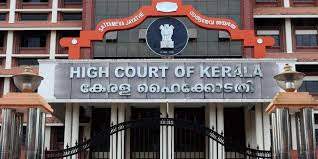Plea by a couple to abort the 34-week-old-foetus because of serious medical abnormalities was rejected by the High Court. As there are only few days left for development of the complete fetus and on the basis of the recommendation of the Medical Board that there was a high possibility that the child would be born alive the Court rejected the Petitioners Plea. The ratio was laid down by the Kerala High Court presided over by J. P.V. Asha in the case of Akhila Kurian Alias Akhila Ann Baby Vs. Union of India, [WP (C) No. 27842 of 2020].
The brief facts of this case are that the Petitioners i.e. the husband and the wife approached the High Court for seeking permission for medical termination of pregnancy at a gestational age of 34-week-old-foetus because of serious abnormalities in the fetus. The Petitioner contended that the mother has every right to decide on continuance of her pregnancy under Article 21 of the Constitution and hence she should be permitted to undergo medical termination of her pregnancy. The Petitioner is aware and willing to take the risk involved. The Medical Board contended that the fetus has serious developmental brain anomalies but there is a possibility of survival of the baby at birth. Further, the Government pleader pointed that the Child Welfare Committee would take care of the child and not to permit the termination of pregnancy as this would violate the right to life of child in the womb.
The Court observed that the gestational age had exceeded the period of 32 weeks and it further carefully analyzed the submissions made by both the parties. The Court further elaborated the on the provisions of Medical Termination of Pregnancy Act, 1971, which permits abortion upto 20 weeks and only under certain exceptional circumstances the abortion of the child would be permitted. The exception circumstances are as follows –
- Continuance of the pregnancy would involve a risk to the life of the pregnant woman or of grave injury to physical or mental health.
- There is a substantial risk that if the child were born, it would suffer from such physical or mental abnormalities as to be seriously handicapped.
In the above given case the court observed that, “Though the learned counsel for the petitioners pointed out that the petitioners are willing to take a risk, in none of the judgments relied on by Sri. Isaac Thomas, the gestational age had exceeded 32 weeks. Now it is a question of only some more days left for the full development of the foetus. Therefore, I am of the view that the stage at which permission can be granted has crossed the limits. Moreover, I have already dismissed W.P.(C).No.18610/2020 where gestational age was 31 weeks.


